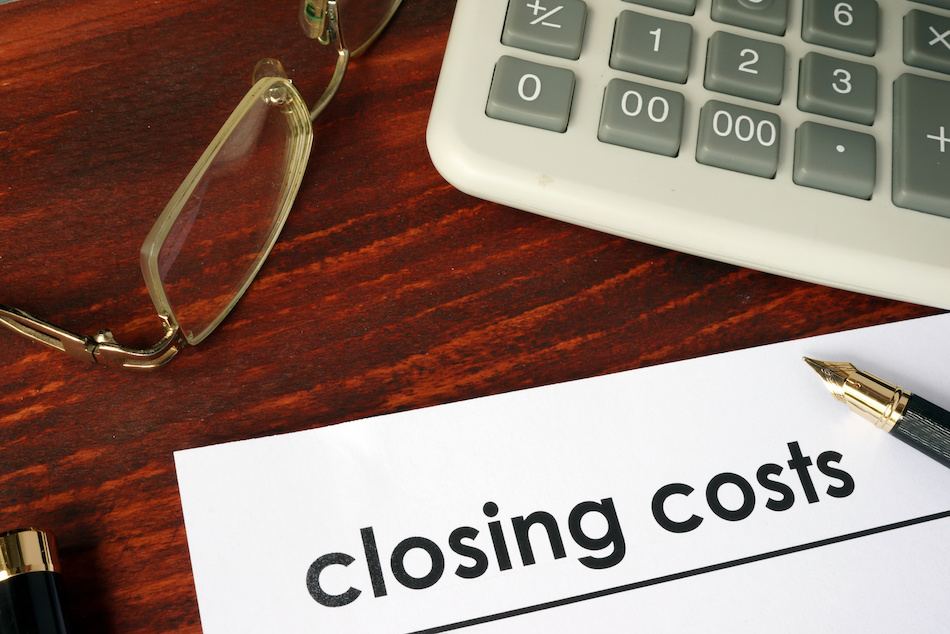How to Calculate a Budget for Closing Costs
Posted by Gary Ashton on Tuesday, September 11th, 2018 at 9:51am.
 Buying a home can involve a lot of expenses to consider, including a down payment, fees, inspection costs, and more. What many people tend to think of, though, when purchasing a home is the sum of closing costs that must be paid before the purchase is finalized. While many parts of the buying process are important, having enough capital for closing costs is an integral part of the entire purchase.
Buying a home can involve a lot of expenses to consider, including a down payment, fees, inspection costs, and more. What many people tend to think of, though, when purchasing a home is the sum of closing costs that must be paid before the purchase is finalized. While many parts of the buying process are important, having enough capital for closing costs is an integral part of the entire purchase.
What Do Closing Costs Entail?
Closing costs can include everything from recording fees, title policies, courier charges, inspections, and an impound account. This will range from 2 to 4 percent of the total purchase price, varying based on origination fees the lender charged for the loan.
Although closing costs are portrayed as one lump sum that’s paid to finalize a home purchase, they are actually made up of a variety of smaller fees that are required to process the paperwork that’s involved. These fees can include items like costs for pulling a buyer’s credit report, application costs, origination fees, and much more.
It’s important to remember that closing costs can vary dramatically from purchase to purchase. Some types of loans can have minimal closing costs while others might find they pay up to 5 percent of the home’s purchase price. It’s not uncommon to see these costs being rolled into the total financing of the home, as lenders can be flexible in this area.
Closing costs are one of the areas that can be negotiated between buyer and seller too, as some homeowners choose to advertise a special arrangement on closing costs to make their property more enticing. If paying closing costs might be a challenge for you, discuss options with your real estate agent. They could be able to get some of the amount paid for by the seller or get them to negotiate in other ways to get into a great home in a community like Goodlettsville.
Recurring Closing Cost Fees
Be aware that with the purchase of your new home, you will have recurring charges that are paid continuously. This includes items such as your property taxes, flood insurance, fire insurance premium, and prepaid interest.
One-Time Closing Cost Fees
Fortunately for buyers, there are some charges that will only be paid once and not regularly after the purchase of the home. For example, you will only pay one time for your title policies and escrow or closing. Other charges are a one-time fee such as:
- Attorney Fees
- Home Inspection
- Endorsements
- Notary
- Wire Fees
- Home Protection Plans
- State or City Transfer Taxes
When The Costs Are A Burden
Although the idea of closing costs is a pretty well-known expense that buyers plan for, making sure they have the resources to actually cover this sum is crucial. Thankfully, mortgage lenders are required to give buyers detailed information that itemizes their closing costs, and they usually have at least a few business days to request any revisions before signing the paperwork.
The safest route is usually to overestimate what a home’s closing costs might be. That way if certain expenses run higher than anticipated, the funds for closing won’t be jeopardized. Since costs can run up to 5 percent of a home’s sale price, it might not be a bad idea to budget at least that much and keep it set aside.
If a home purchase is coming to a close and suddenly you find you aren’t able to cover the closing costs, it can put you in a stressful situation. Some individuals find they need to borrow money from a friend or family member to meet this obligation, which can make the purchasing process less enjoyable in some instances.
Better Safe Than Sorry
Closing costs are typically in the thousands, so being aware that this will come up is very important as a buyer. For example, if your house cost $200,000 your closing costs could range from $2,000 to $8,000 or more. Sometimes a seller can credit the buyer for closing costs if they negotiate an offer that includes a seller credit.
Buying a home in Nashville is a wonderful investment, so being educated on the costs that come with this purchase will allow your family to be prepared.
Planning to buy a home can mean keeping track of a lot of moving parts, but it’s best to over budget and have extra money after moving in instead of coming up short. If you’re not sure how much money to estimate for the various costs associated with purchasing a home, talk with a reputable mortgage lender like AmerisBank to learn more.

Gary Ashton
The Ashton Real Estate Group of RE/MAX Advantage
The #1 RE/MAX team in the World!
